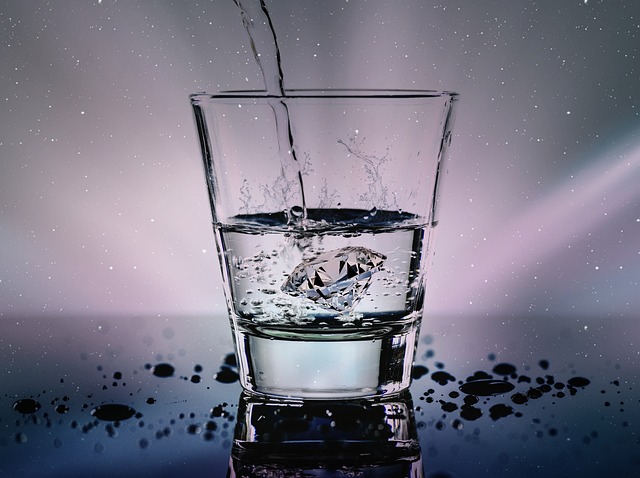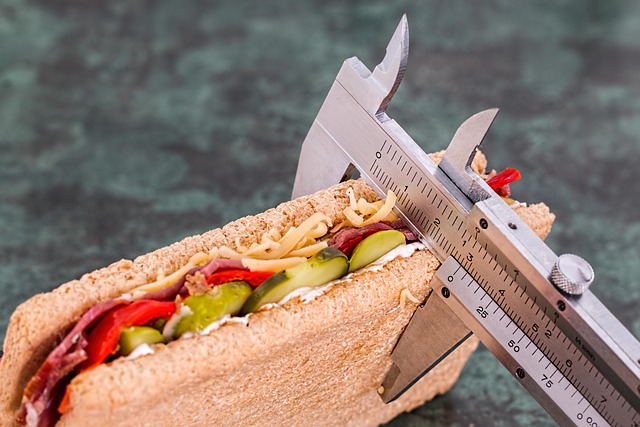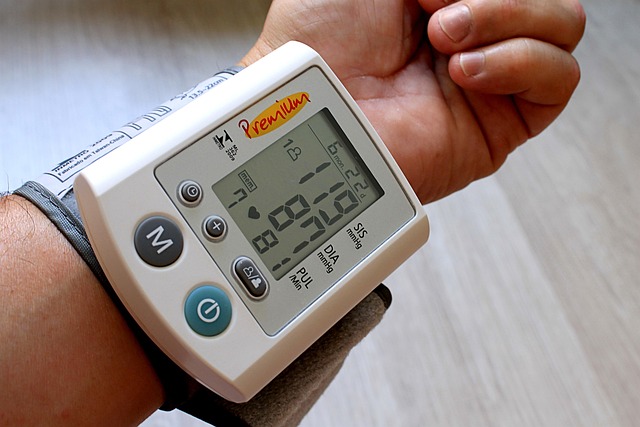Getting enough fluids every day is essential for staying healthy. Water not only keeps you hydrated, but also supports metabolism, regulates body temperature, aids digestion, and helps flush out toxins.
Since everyone’s fluid needs are different — depending on weight, age, activity level, and even the weather — our calculator makes it easy to find out how much fluid your body needs throughout the day.
Daily Fluid Intake Calculator
- Total: —
- To drink: —
- Estimated from food: —
- ≈ — glasses (250 ml)
- ≈ — bottles (500 ml)
- BMI: —
Why daily fluid intake matters
Water is the most vital nutrient for the human body. While humans can survive weeks without food, survival without water is limited to just a few days. Every cell, tissue, and organ depends on water to function properly. Blood circulation, muscle contraction, brain activity, and even joint lubrication rely heavily on adequate hydration.
Without enough fluids, the body cannot regulate temperature, transport nutrients, or eliminate waste effectively. Dehydration affects energy levels, concentration, and overall physical performance. In extreme cases, it can cause life-threatening complications. That’s why monitoring daily fluid intake is fundamental to health.
How much water do we need daily
The question “how much water should I drink each day” has no single answer. Fluid requirements vary depending on age, sex, body weight, climate, and activity level. Health organizations often recommend around 2–3 liters of total fluids per day for adults, but this is only a baseline.
The National Academies of Sciences, Engineering, and Medicine advises that men consume about 3.7 liters per day, while women need about 2.7 liters. Importantly, this includes not only drinking water but also other beverages such as coffee, tea, milk, and the water content found in foods like fruits and vegetables.
Factors influencing daily fluid intake
Several key factors affect how much fluid your body needs.
Body weight and composition
Heavier individuals require more fluids than lighter ones because of their larger body mass and higher metabolic demand. Muscle tissue holds more water than fat, which is why athletes with more muscle mass typically have greater hydration needs.
Age
Babies are about 75% water, while in older adults this proportion can drop below 50%. Children and adolescents require relatively more fluids than adults, while seniors may have a reduced sense of thirst, making them prone to dehydration.
Physical activity
Exercise increases sweat and respiratory water loss. Even moderate workouts may deplete significant fluids, which must be replenished to maintain strength, endurance, and coordination.
Environment and climate
Hot, humid weather accelerates sweating, while high altitudes promote fluid loss through breathing. Living or working in such environments requires higher daily water intake.
Diet
Salty and spicy foods raise water requirements, while alcohol and caffeine can have a diuretic effect. Conversely, water-rich foods like cucumber, watermelon, and oranges support hydration.
Signs and symptoms of dehydration
Recognizing dehydration early is critical to preventing health complications. Common warning signs include:
-
Dry mouth, cracked lips, or sticky saliva
-
Dark-colored urine or reduced frequency of urination
-
Headaches, dizziness, or lightheadedness
-
Fatigue, irritability, or low energy
-
Difficulty concentrating or reduced alertness
Severe dehydration may lead to rapid heartbeat, very low blood pressure, confusion, fainting, and in the worst cases, organ failure.
Benefits of proper hydration
Meeting recommended daily fluid intake offers numerous advantages.
Improved physical performance
Hydration helps maintain muscle strength, endurance, and reaction time. Even mild dehydration can reduce performance by up to 20%. Staying hydrated also speeds recovery after workouts.
Enhanced brain function
Water supports neurotransmission and blood flow in the brain. Sufficient hydration improves memory, focus, mood, and reduces the risk of headaches and migraines.
Better digestion and metabolism
Water is essential for breaking down food, absorbing nutrients, and transporting them throughout the body. It also prevents constipation and supports a healthy metabolism.
Temperature regulation
By sweating and heat dissipation, water helps regulate internal body temperature. Without enough fluids, overheating and heat stroke become risks.
Kidney and detoxification support
Adequate water intake helps the kidneys filter waste products and maintain electrolyte balance. It lowers the risk of kidney stones and urinary tract infections.
Water vs other beverages
Not all fluids hydrate equally. While plain water is the most effective choice, other beverages can also contribute.
-
Tea and coffee: Contain caffeine but still count toward daily fluid intake. Moderate consumption does not cause significant dehydration.
-
Juices and milk: Provide hydration and nutrients but can also add sugar and calories.
-
Alcoholic drinks: Promote fluid loss and do not support hydration.
-
Sports drinks: Useful during intense exercise for replacing electrolytes, but unnecessary for everyday use.
How to stay hydrated every day
Maintaining hydration requires mindful habits:
-
Carry a water bottle and sip regularly
-
Drink a glass of water before each meal
-
Set reminders to drink throughout the day
-
Increase fluid intake during exercise and hot weather
-
Include water-rich foods like fruits and vegetables in meals
Common myths about hydration
There are many misconceptions about water intake.
-
Myth: You must drink exactly 8 glasses of water per day.
Reality: Hydration needs vary by individual. The “8 glasses” rule is a rough estimate, not a universal requirement. -
Myth: Caffeinated drinks don’t count toward hydration.
Reality: Moderate coffee or tea consumption still contributes to daily fluid intake. -
Myth: If you’re not thirsty, you’re hydrated.
Reality: Thirst is not always a reliable indicator, especially in older adults.
Frequently asked questions
How much water should I drink if I exercise a lot?
You may need an additional 500–1000 ml per hour of activity, depending on intensity and temperature.
Can I drink too much water?
Yes. Overhydration, or water intoxication, is rare but dangerous. It dilutes sodium levels in the blood, causing hyponatremia. Balance is key.
Do foods count toward fluid intake?
Absolutely. On average, about 20% of daily fluid comes from food, especially fruits, vegetables, and soups.
How do I know if I’m drinking enough?
A simple indicator is urine color: pale yellow suggests adequate hydration, while darker shades indicate dehydration.
Hydration for athletes and active people
Athletes have significantly higher hydration needs than sedentary individuals. During intense exercise, the body can lose one to two liters of fluid per hour through sweat alone. If these losses are not replenished, dehydration sets in quickly, impairing strength, speed, and endurance.
Performance studies consistently show that losing even 2% of body weight through dehydration reduces aerobic performance and increases fatigue. In sports like marathon running, cycling, or football, proper hydration can mean the difference between winning and losing.
Sports drinks containing electrolytes such as sodium, potassium, and magnesium can help maintain fluid balance during extended physical activity. However, for everyday workouts of less than one hour, plain water is usually sufficient.
Hydration for children
Children are particularly vulnerable to dehydration because their bodies contain a higher proportion of water and they lose fluids more quickly. They are also less likely to recognize or communicate feelings of thirst. Parents and caregivers should encourage regular water breaks, especially during playtime, school activities, or hot weather.
Sugary sodas and juices are not recommended as primary sources of hydration because of their high sugar content, which can lead to obesity and dental issues. Instead, water, milk, and small amounts of 100% fruit juice are healthier choices.
Hydration for older adults
Older adults face unique hydration challenges. With age, the body’s total water content decreases, and the sense of thirst becomes less reliable. Many seniors also take medications, such as diuretics, which can increase fluid loss.
Dehydration in older adults can lead to serious health problems, including urinary tract infections, kidney issues, confusion, and falls. That’s why consistent, scheduled drinking — rather than waiting for thirst — is recommended. Keeping a water glass within reach, flavoring water with lemon or herbs, and consuming soups or hydrating fruits can make it easier to maintain proper intake.
Hydration and weight management
Drinking enough water can support healthy weight management. Studies have found that consuming water before meals can reduce appetite, leading to lower calorie intake. Additionally, water has zero calories, making it a perfect substitute for high-calorie beverages like sodas or sweetened coffees.
Water also supports metabolism. Research shows that drinking cold water may slightly increase calorie burning, as the body expends energy to warm it to body temperature. While the effect is modest, over time it can contribute to maintaining a healthy weight.
Hydration and skin health
Proper hydration is essential for maintaining healthy skin. Although water alone cannot eliminate wrinkles or completely prevent aging, it supports skin elasticity, texture, and overall appearance. Dehydration can make the skin appear dry, flaky, and dull.
Many dermatologists emphasize that water complements — but does not replace — external skin care. Moisturizers, sunscreens, and a balanced diet rich in antioxidants all play roles in keeping the skin healthy. Still, drinking enough fluids ensures that skin cells remain nourished and better able to repair themselves.
Hydration and kidney health
The kidneys are responsible for filtering waste and maintaining electrolyte balance. Adequate water intake reduces the risk of kidney stones, which form when minerals crystallize in concentrated urine. Research shows that people who drink more fluids have a significantly lower risk of developing stones.
In addition, hydration lowers the risk of urinary tract infections (UTIs). Regular urination flushes bacteria from the urinary tract, reducing infection risk. For this reason, both men and women are advised to maintain consistent fluid intake throughout the day.
Hydration for special conditions
Certain medical conditions increase the need for hydration.
-
Pregnancy and breastfeeding: Women require more fluids to support increased blood volume and milk production. Experts recommend at least 3 liters per day during pregnancy and even more during breastfeeding.
-
Illness and fever: When the body fights infection, fluids are lost more rapidly through sweat, vomiting, or diarrhea. Rehydration with oral rehydration solutions may be necessary.
-
Diabetes: People with uncontrolled diabetes may lose more fluids through increased urination. Monitoring hydration is critical in these cases.
Technology and hydration tracking
With the rise of digital health, many tools now help individuals track their daily fluid intake. Smartphone apps, smart bottles, and fitness trackers can log water consumption and send reminders. Online tools such as a daily fluid intake calculator make it easy to estimate personal hydration needs based on weight, age, and activity.
These digital aids promote consistency, which is the most important factor in building healthy hydration habits.
Global perspectives on hydration
Cultural differences influence hydration habits. In some countries, drinking tea multiple times per day is a primary source of fluids. In warmer climates, people naturally consume more water, while in colder regions, hot beverages like herbal teas or soups dominate.
Despite these variations, one universal truth remains: hydration is critical to human survival and optimal performance, regardless of geography or lifestyle.
Hydration in different types of sports
While hydration is important for everyone, athletes in different sports have unique needs.
Endurance athletes
Marathon runners, triathletes, and cyclists lose large volumes of sweat during long events. For them, a combination of water and electrolyte-rich sports drinks is recommended. Drinking too much plain water without electrolytes during long races can lead to hyponatremia, a dangerous condition where blood sodium levels drop too low.
Strength athletes
Weightlifters and bodybuilders may not lose as much fluid during short sessions, but hydration is still essential for muscle contraction and recovery. Dehydrated muscles are more prone to cramps and injuries.
Swimmers
Even though swimming takes place in water, swimmers lose fluids through sweat and respiration. Because they don’t feel as hot, they may underestimate fluid loss. Coaches encourage swimmers to drink before and after training.
Team sports
Football, basketball, and soccer players experience intense bursts of activity. Frequent water breaks during matches help maintain performance and prevent fatigue.
Hydration and mental health
Water intake directly influences mood and emotional balance. Research shows that even mild dehydration can increase stress, anxiety, and irritability. Proper hydration improves serotonin production, contributing to a more stable mood.
Students and professionals who stay hydrated often report better concentration, memory, and problem-solving abilities. In contrast, dehydration can mimic symptoms of depression, including low energy and lack of motivation.
Hydration and sleep
Water also affects sleep quality. Drinking enough fluids throughout the day helps regulate body temperature during rest. However, drinking large amounts right before bedtime can disrupt sleep with frequent trips to the bathroom.
Experts recommend spreading fluid intake evenly during the day, with a slight reduction in the evening to promote uninterrupted rest. Herbal teas and warm water can also support relaxation before bed.
Hydration while traveling
Travel often disrupts hydration habits. Airplane cabins, for example, have very low humidity, leading to rapid dehydration. Long drives or busy sightseeing schedules can also reduce fluid consumption.
Practical travel tips include:
-
Carrying a refillable water bottle
-
Avoiding excessive caffeine and alcohol on flights
-
Eating hydrating foods like fruits and salads during trips
-
Setting reminders to drink water regularly while on the road
Water quality and sources
Not all water sources are equal in quality. Safe drinking water must be free from harmful bacteria, heavy metals, and pollutants.
-
Tap water: In most developed countries, tap water is safe, regulated, and more environmentally friendly than bottled water.
-
Bottled water: Convenient but costly and environmentally unsustainable due to plastic waste.
-
Filtered water: Home filtration systems can improve taste and remove contaminants, offering a good balance between safety and sustainability.
-
Mineral water: Contains beneficial minerals like calcium and magnesium but is not necessary for hydration unless specifically recommended.
Sustainability and hydration choices
Hydration habits also have environmental consequences. Every year, billions of plastic bottles are discarded, creating waste and pollution. Choosing tap water or reusable bottles helps reduce environmental impact.
Many organizations promote sustainable hydration by installing public refill stations, encouraging reusable bottles, and raising awareness about plastic pollution. Staying hydrated responsibly benefits both personal health and the planet.
Advanced hydration strategies
Some individuals require more specialized hydration approaches:
-
Athletes in hot climates: Pre-hydration before events, electrolyte supplementation, and post-exercise rehydration.
-
People with high-sodium diets: Extra water intake to balance electrolytes.
-
Office workers: Setting a timer to drink a glass of water every hour.
-
Night-shift workers: Balancing hydration to support energy levels without disturbing sleep.
Hydration is more than just drinking water when thirsty. It is a continuous process that affects physical health, mental performance, sleep quality, and even environmental sustainability. By using a daily fluid intake calculator, you gain personalized insight into your hydration needs. Combined with mindful drinking habits and smart lifestyle choices, this ensures long-term vitality, productivity, and well-being.
Image(s) used in this article are either AI-generated or sourced from royalty-free platforms like Pixabay or Pexels.
Did you enjoy this article? Buy me a coffee!






